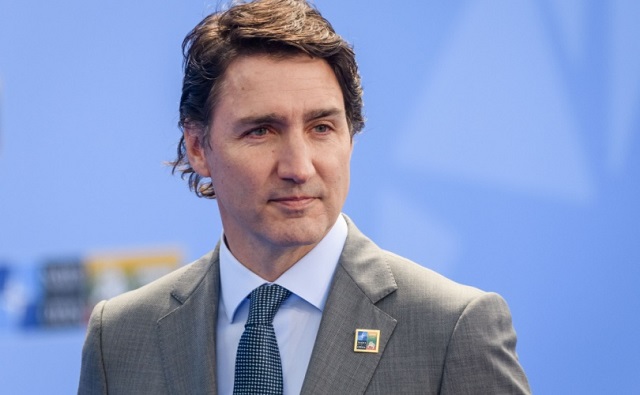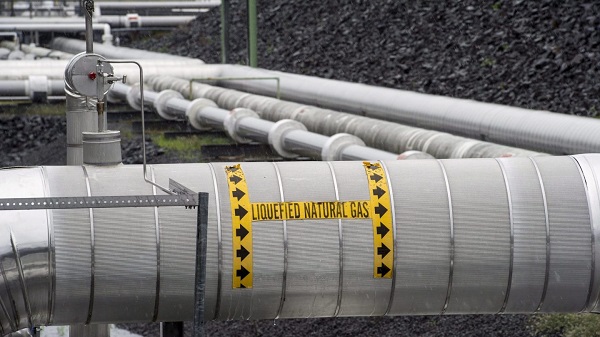National
Trudeau hangs on to power as NDP, Bloc Québécois block Conservative non-confidence motion

From LifeSiteNews
NDP and Bloc Québécois MPs joined the Liberals in a vote of 211 to 120 to keep Trudeau in power despite NDP leader Jamgeet Singh previously saying his agreement with the Liberals was over.
The separatist Bloc Québécois and the socialist New Democrats voted to keep Prime Minister Justin Trudeau’s minority government in power this afternoon, voting against a Conservative Party motion of non-confidence against the ruling Liberal party.
This afternoon, MPs overall voted 211 against to 120 in favor of the Conservative motion which read, “The House has no confidence in the Prime Minister and the Government.” Two independent MPs joined the conservatives to vote in favor of the motion.
Conservative leader Pierre Poilievre blasted the NDP and Bloc for propping up the Trudeau Liberals, saying on X today they voted to “keep Trudeau in power to tax your food, take your money, double your housing costs & unleash crime & chaos.”
BREAKING: The NDP vote to keep Trudeau in power to tax your food, take your money, double your housing costs & unleash crime & chaos.
The Costly Coalition is back & on the path to QUADRUPLING the carbon tax to $0.61/L.
Sign for a carbon tax election: https://t.co/ECH7waj3mu
— Pierre Poilievre (@PierrePoilievre) September 25, 2024
“The Costly Coalition is back & on the path to QUADRUPLING the carbon tax to $0.61/L.”
Poilievre has repeatedly called for what he has dubbed a “carbon tax election.”
Conservative MP Michael Cooper, who serves as the Shadow Minister for Democratic Reform, blasted the NDP for “selling out” to prop up the Trudeau Liberals.
“Sellout Jagmeet Singh sells out AGAIN. After making a big deal about ‘ripping up the agreement,’ Singh & the NDP just voted to rescue Trudeau AGAIN. Thanks to Sellout Jagmeet Singh, the Trudeau NIGHTMARE continues,” he wrote on X this afternoon.
BREAKING
Sellout Jagmeet Singh sells out AGAIN.
After making a big deal about "ripping up the agreement," Singh & the NDP just voted to rescue Trudeau AGAIN.
Thanks to Sellout Jagmeet Singh, the Trudeau NIGHTMARE continues…
— Michael Cooper, MP (@MichaelCooperMP) September 25, 2024
The failed non-confidence motion comes after Trudeau was supposed to have lost support from the socialist NDP when its leader Singh pulled his official support from the Liberals two weeks ago.
Regardless of the continued support from the NDP and the Bloc, the Trudeau Liberals are widely accepted to be floundering, having recently lost two byelections, one in Quebec and the other in Ontario, in what were considered “safe” Liberal ridings.
While both Singh and Bloc leader Yves Blanchet said in advance of Tuesday’s vote that they would not support the Conservative non-confidence motion, Blanchet has said that unless Trudeau passes two of his party’s bills before the end of October, he would work with other opposition parties to bring down the Liberals.
While confidence motions are used mainly when it comes to budgets, they can be brought forth for other reasons. Either way, the Conservatives will need the support of the NDP and the Bloc in order to have such a motion pass.
Canadian Energy Centre
First Nations in Manitoba pushing for LNG exports from Hudson’s Bay

From the Canadian Energy Centre
By Will Gibson
NeeStaNan project would use port location selected by Canadian government more than 100 years ago
Building a port on Hudson’s Bay to ship natural resources harvested across Western Canada to the world has been a long-held dream of Canadian politicians, starting with Sir Wilfred Laurier.
Since 1931, a small deepwater port has operated at Churchill, Manitoba, primarily shipping grain but more recently expanding handling of critical minerals and fertilizers.
A group of 11 First Nations in Manitoba plans to build an additional industrial terminal nearby at Port Nelson to ship liquefied natural gas (LNG) to Europe and potash to Brazil.
Robyn Lore, a director with project backer NeeStaNan, which is Cree for “all of us,” said it makes more sense to ship Canadian LNG to Europe from an Arctic port than it does to send Canadian natural gas all the way to the U.S. Gulf Coast to be exported as LNG to the same place – which is happening today.
“There is absolutely a business case for sending our LNG directly to European markets rather than sending our natural gas down to the Gulf Coast and having them liquefy it and ship it over,” Lore said. “It’s in Canada’s interest to do this.”
Over 100 years ago, the Port Nelson location at the south end of Hudson’s Bay on the Nelson River was the first to be considered for a Canadian Arctic port.
In 1912, a Port Nelson project was selected to proceed rather than a port at Churchill, about 280 kilometres north.
The Port Nelson site was earmarked by federal government engineers as the most cost-effective location for a terminal to ship Canadian resources overseas.
Construction started but was marred by building challenges due to violent winter storms that beached supply ships and badly damaged the dredge used to deepen the waters around the port.
By 1918, the project was abandoned.
In the 1920s, Prime Minister William Lyon MacKenzie King chose Churchill as the new location for a port on Hudson’s Bay, where it was built and continues to operate today between late July and early November when it is not iced in.
Lore sees using modern technology at Port Nelson including dredging or extending a floating wharf to overcome the challenges that stopped the project from proceeding more than a century ago.
He said natural gas could travel to the terminal through a 1,000-kilometre spur line off TC Energy’s Canadian Mainline by using Manitoba Hydro’s existing right of way.
A second option proposes shipping natural gas through Pembina Pipeline’s Alliance system to Regina, where it could be liquefied and shipped by rail to Port Nelson.
The original rail bed to Port Nelson still exists, and about 150 kilometers of track would have to be laid to reach the proposed site, Lore said.
“Our vision is for a rail line that can handle 150-car trains with loads of 120 tonnes per car running at 80 kilometers per hour. That’s doable on the line from Amery to Port Nelson. It makes the economics work for shippers,” said Lore.
Port Nelson could be used around the year because saltwater ice is easier to break through using modern icebreakers than freshwater ice that impacts Churchill between November and May.
Lore, however, is quick to quell the notion NeeStaNan is competing against the existing port.
“We want our project to proceed on its merits and collaborate with other ports for greater efficiency,” he said.
“It makes sense for Manitoba, and it makes sense for Canada, even more than it did for Laurier more than 100 years ago.”
2025 Federal Election
Allegations of ethical misconduct by the Prime Minister and Government of Canada during the current federal election campaign

 Preston Manning
Preston Manning
A letter to the Ethics Commissioner sent April 9th, 2025
On April 4, 2025, during the current federal election period, in which employees of the Canadian Broadcasting Corporation (CBC) report on all aspects of the election, the unelected Prime Minister, without any consultation with or authorization by parliament but apparently with the concurrence of the Minister of Heritage, promised an increase of $150 million in the budget of the CBC on top of its $1.38 billion budget for the current fiscal year.
The CBC consistently and for obvious reasons tends to share the ideological orientation of the governing Liberal Party and its political allies, and supports many of their policy positions. It tends to ignore or oppose those of the Conservative Official Opposition which proposes dismantling the CBC.
The unelected Liberal Prime Minister promising a $150 million bonus to the CBC in the middle of an election campaign would thus strike any objective observer as unethical, damaging to public confidence in our democratic institutions, and deserving of investigation and commentary by your office.
In particular, it is respectfully requested that you address the following questions:
1. Has the Prime Minister acted unethically by promising the state owned broadcasting corporation, sympathetic to the governing party, a $150 million increase in its budget, during a federal election campaign?
2. Is the promise of a $150 million increase in the budget of the CBC, during an election period in which the CBC is expected to give objective coverage to the campaign, in effect a defacto bribe and contrary to the spirit and the letter of the Conflict of Interest Code and Act?
In addition, on April 7, 2025, again during the current election period, the Prime Minister has announced that the federal government will distribute approximately $4 billion in carbon rebate payments directly to approximately 13 million Canadians, many of whom are eligible voters, and will do so prior to the election day of April 28.
This naturally raises the following questions which it is again respectfully requested that you address:
3. Has the Prime Minister and the federal government acted unethically by authorizing the distribution, prior to election day, of almost $4 billion in rebate payments to approximately 13 million Canadians, many of whom are voters, and doing so with the suspected intent of winning the support of those voters?
4. Is the promise and delivery, prior to election day, of almost $4 billion in rebate payments to approximately 13 million Canadians, many of whom are voters, in effect a defacto attempt to bribe those voters with their own money, and contrary to the spirit and the letter of the Conflict of Interest Code and Act?
To assist in the consideration of these allegations, suppose the UN were to ask Canada to supervise a national election in a third world country where democracy is frail and elections subject to abuse by those in authority. Suppose further that the unelected president of that country, during the election campaign period, endeavored to secure:
· The support of the state broadcasting corporation by promising it a huge increase in its budget, and,
· The support of millions of voters by ensuring that they received a generous personal payment from his government just prior to election day.
In such a situation, would not the Canadian monitoring authority be obliged to strongly censure such behaviors and report to the UN that such behavior calls into question the democratic legitimacy of the election subjected to such abuses?
If we as Canadians would consider such political behaviors anti-democratic and unacceptable if practiced in a foreign country, ought we not to come to the same conclusion even more quickly and certainly when they are regrettably practiced in our own?
Please respond to questions 1-4 above prior to April 25, 2025 and please ensure that your responses are made public prior to that date.
Thanking you for your service and your commitment to safeguarding public confidence in Canada’s democratic institutions and processes.
Your sincerely,
Preston Manning PC CC AOE
-

 2025 Federal Election2 days ago
2025 Federal Election2 days agoRCMP Whistleblowers Accuse Members of Mark Carney’s Inner Circle of Security Breaches and Surveillance
-

 Also Interesting2 days ago
Also Interesting2 days agoBetFury Review: Is It the Best Crypto Casino?
-

 Autism2 days ago
Autism2 days agoRFK Jr. Exposes a Chilling New Autism Reality
-

 COVID-192 days ago
COVID-192 days agoCanadian student denied religious exemption for COVID jab takes tech school to court
-

 2025 Federal Election2 days ago
2025 Federal Election2 days agoBureau Exclusive: Chinese Election Interference Network Tied to Senate Breach Investigation
-

 International2 days ago
International2 days agoUK Supreme Court rules ‘woman’ means biological female
-

 2025 Federal Election2 days ago
2025 Federal Election2 days agoNeil Young + Carney / Freedom Bros
-

 Health2 days ago
Health2 days agoWHO member states agree on draft of ‘pandemic treaty’ that could be adopted in May








